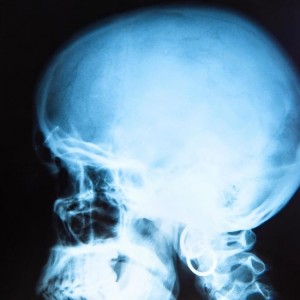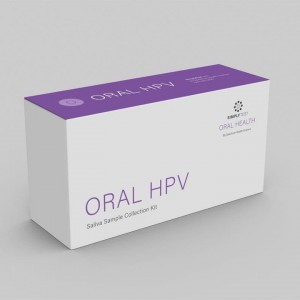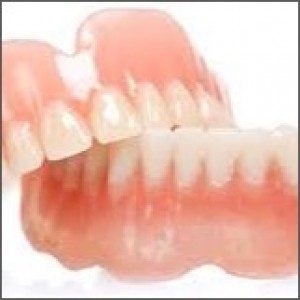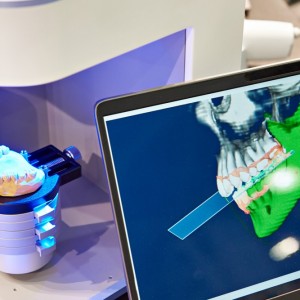
A new genetic approach to identify those at elevated risk of generalized aggressive periodontitis
Simona Chirico
Aggressive periodontitis (AgP) is a rapid and severe progressive periodontitis. It occurs in the absence of systemic diseases and is characterized by familiarity. AgP can be localized or generalized.
Generalized aggressive periodontitis (GAgP) is characterized by the loss of clinical attachment (AL) of at least three teeth, except for the incisors and first molars, according to the 1999 International World Workshop classification of periodontal diseases and conditions.
GAgP has a multifactorial etiology and a genetic predisposition. The genetic risk score (GRS) is an estimate of the cumulative contribution of genetic factors capable of developing susceptibility for certain diseases. This method has been widely used to investigate diseases including breast cancer, type 2 diabetes, schizophrenia, and other psychiatric disorders including Alzheimer's. Given the familiarity for GAgP, the GRS could therefore be useful for identifying subjects at elevated risk of GAgP.
Materials and methods
In a study conducted by Li et al., the authors selected genes and loci that could be associated with GAgP, to identify the GAgP susceptibility genes in the Chinese population.
Researchers enrolled 335 patients with GAgP generalized aggressive periodontitis and 114 healthy controls. The inclusion criteria for patients with GAgP were as follows:
- Patients less than 36 years old with at least six teeth with PD pocket depth ≥ 5 mm, and clinical attachment loss AL ≥ 3 mm, with evident radiographic loss of interproximal bone. Patients also had generalized aggressive periodontitis verified by family history and family members also received a periodontal examination.
Whole blood samples were obtained, and genomic DNA was extracted from each sample using a mini kit according to the manufacturer's instructions.
The GRS genetic risk score was calculated based on the achievement of significant levels of single nucleotide SNPs of the candidate gene (P <0.05). Four SNPs with susceptibility variants for GAgP were detected and therefore included in the calculation for the GRS. Two approaches were used to calculate the GRS: a simple risk allele counting method (unweighted GRS [uGRS]) and a weighted method (weighted GRS [wGRS]). Logistic regression models were performed for the association analyzes between GRS and GAgP risk.
Results
Four loci were significantly associated with GAgP and are: - matrix metalloproteinase 8 rs11225395 - epidermal growth factor - PPARa rs4253623 e - apolipoprotein E rs429358. Each additional point of uGRS / wGRS was associated with a 50% / 31% increased risk of developing GAgP after adjusting for age, gender, and body mass index (BMI).
Participants assigned after genetic analysis to the uGRS / wGRS high-level group and the uGRS / wGRS medium-level group had an increased risk of GAgP compared to participants assigned to the uGRS / wGRS low-level group after adjustment for age, gender and BMI.
Conclusions
The multi-locus GRS based on four significant single nucleotide polymorphisms might be useful to assess genetic predisposition to GAgP. The GRS in combination with conventional risk factors significantly improved the power of identifying subgroups of Chinese population with a particularly high risk for GAgP.
Wenjing Li, Xian'e Wang, Yu Tian, Li Xu, Li Zhang, Dong Shi, Xianghui Feng, Ruifang Lu, Huanxin Meng. “A novel multi-locus genetic risk score identifies patients with higher risk of generalized aggressive periodontitis.” J Periodontol. 2020 Jul; 91 (7): 925-932. https://doi.org/10.1002/JPER.19-0135
 Related articles
Related articles
Aggressive periodontitis is a destructive disease characterized by the following: the involvement of multiple teeth with a distinctive pattern of periodontal tissue loss; a high rate of disease...
Periodontology 09 April 2025
Periodontitis is a chronic inflammatory non-communicable disease (NCD) characterised by the destruction of the tooth-supporting apparatus (periodontium), including alveolar bone, the presence of...
Periodontology 21 February 2025
Periodontology 08 November 2024
Microbiology in Diagnosis and Treatment of Severe Periodontitis. A Report of Four Cases
The purpose of this report is to illustrate the use of microbiology in the diagnosis and treatment in four cases of severe adult periodontitis.
Endodontics 21 September 2023
The authors previously demonstrated that auxiliary metformin therapy promotes healing of apical periodontitis. Here, the team aimed to investigate the effects of metformin on osteoblast...
 Read more
Read more
Much like EMTs rushing to the scene after an accident, stem cells hurry to the site of a skull fracture to start mending the damage. A new finding has uncovered the signaling mechanism that triggers...
Products 05 November 2025
SimplyTest has launched a groundbreaking saliva-based test to detect high-risk strains of oral human papillomavirus (HPV), a major cause of oropharyngeal cancers.
News 05 November 2025
Perimetrics, Inc., a dental technology company pioneering quantitative diagnostics, announced today that the U.S. Food and Drug Administration (FDA) has granted clearance for the InnerView...
News 05 November 2025
On October 15, open enrollment for Medicare began nationwide. Hundreds of thousands of seniors in New Jersey will once again face the challenge of finding the right Medicare coverage, including the...
Digital Dentistry 04 November 2025
Digitalisation is an expanding field in dentistry and implementation of digital teaching methods in dental education is an essential part of modern education.















